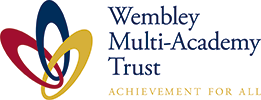Our Curriculum
Our fundamental belief is that all students are entitled to a broad and balanced curriculum that prepares them for the next stage of their education, employment or training. At the heart of our curriculum is the key knowledge and skills that students need to succeed when they leave the school and step into adulthood ready to meet the challenges of life in 21st century Britain.
From the moment our students join the school in Year 7, our aim is the make sure we have mapped out their learning journey so that they are successful when they leave us for university, apprenticeships or employment. We provide an education that is broadly traditional and academically rigorous while at the same time combining the latest research into teaching pedagogy so that learning is maximised and all children reach their full potential.
For a student to have truly learned something it must be in their long-term memory ready to be called forth in whichever context they need. Our teachers are subject experts and think carefully about how best to design and teach our curriculum so that it is remembered and not merely encountered. We have an evidence informed approach to teaching and a proven track record so we know it works. We sequence the curriculum so that new knowledge is built upon old knowledge with learning building over time. We provide a challenging classroom environment, which encourages participation, curiosity and enquiry. We insist that students work hard outside the classroom. Our homework strategy complements the curriculum as it requires students to read, practise and revisit prior learning. Over time, our students learn more, remember more and do more.
We believe that all students, whatever their background, deserves to access the full curriculum we offer. We know that some children will need more help in order to flourish and we work tirelessly to make sure they get the right support to catch-up.
Of equal importance to learning the curriculum is ensuring our teachers are skilled at assessing what has been learnt. For teachers to be able to adapt their teaching effectively, they rely on a range of assessment tools to provide data on the knowledge students have and how much more they have remembered over time. Over the course of their study, we will use weekly/fortnightly cumulative formative diagnostic assessments (in class or for homework) to ensure that students are consistently retrieving their knowledge of different components. The purpose of this is to ensure all knowledge is retained (and any gaps are identified and addressed promptly) and also to inform teachers’ planning. Using this style of assessment, we make use of the advantages of spaced practice as well as allowing students to be able to apply their knowledge to a wide variety of contexts.
Students will also sit a summative assessment every term. This assessment will be cumulative and will assess not only what students have learned over the previous term, but also their understanding of all relevant material previously taught. This is used to inform future planning, support with additional interventions and set changes.
If you would like further information on our year to year curriculum, please click on the relevant year below:
For more detail on every subject, please click on the link below for a year-by-year curriculum overview.
|
Art |
Business |
Computer Science Digital Information Technology |
Design Technology |
|
Drama |
Economics |
English |
French |
|
Geography
|
History |
Latin |
Personal Development |
|
Maths |
Music |
PE |
Photography |
|
Psychology |
Religious Studies |
Science |
Sociology |
|
Spanish |
|
|
|
If you would like further information on our year to year curriculum, please contact reception@whtc.co.uk






























